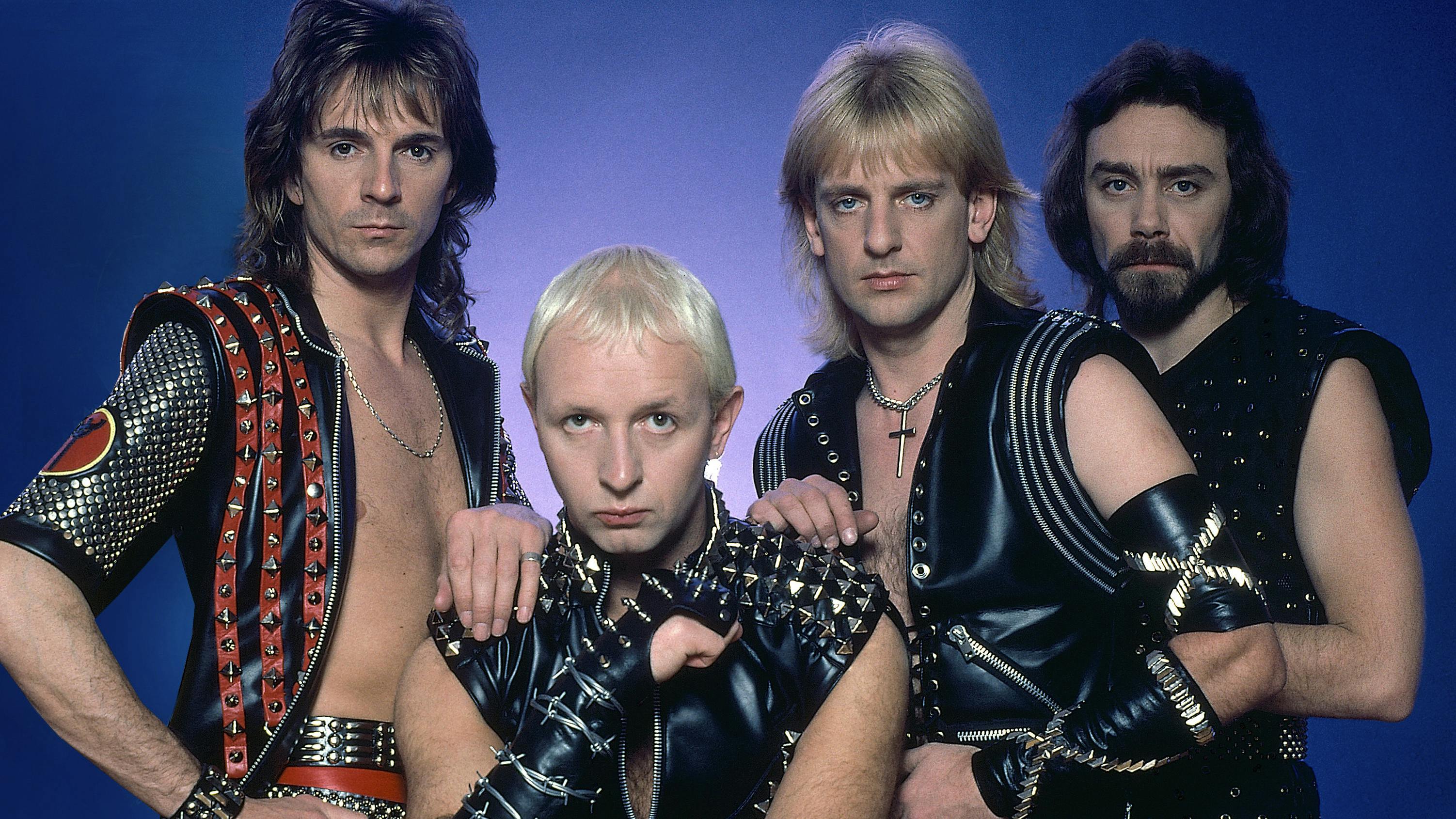Rob Halford coming out in 1998 changed the way that people looked at Judas Priest. With Rob out of the closet, the band’s leather biker aesthetic took on an explicitly gay dimension, causing shocked fans to claim that they had no idea. But now, in retrospect, every discussion of Judas Priest’s music is full of semi-serious comments about just how obvious the vocalist’s queerness was, given the band’s albums are full of songs with titles like Hell Bent For Leather, Breaking The Law and Ram It Down. But there’s much more nuance to the way in which Judas Priest’s songs are about queerness; ideas that go far beyond the not-so-subtle nods towards gay sex. The depth of this writing is clear across ninth studio album Defenders Of The Faith, originally released in 1984.
Defenders Of The Faith isn’t without songs that appear obviously queer in hindsight. How else is anyone going to interpret Jawbreaker? And while the song has an obvious sexual dimension, there’s a deeper level to the kind of frustration that it evokes. There’s an element of repression running through the lyrics, of something that needs to be said, but can’t be. Lines like ‘And all the pressure has been building up / For all the years it bore its load’ have clear sexual connotations, but also a depth that comes from exploring ideas of being closeted and looking for a certain kind of freedom and liberation. Even one of Priest’s most ‘obviously queer’ songs, Hell Bent For Leather, had this extra dimension to it in lines like ‘Seek him here, seek him on the highway / Never knowing when he’ll appear’ evoke cruising, and being followed directly by ‘Hear the roar as they sense the fear’ brings to mind the dangerous anticipation of looking for love as a gay man in the 1980s.
The ‘pressure building up’ is more than just sexual. It also encompasses a more personal, emotional kind of frustration. There’s a sense of danger in the way that desire is explored in Jawbreaker, as the first verse ends with the line ‘On the verge of snapping if its caught'. Being caught has a specific resonance when considering the fact that, in spite of the Sexual Offences Act of 1967 decriminalising gay sex to an extent, liberation was a long way off. Defenders Of The Faith itself was released against a backdrop of anti-homosexual Conservative government rhetoric, with Prime Minister Margaret Thatcher arguing against the fact that people have an “inalienable right to be gay” in her 1987 conference speech. In fact, one of the strongest queer elements of Defenders Of The Faith is the quest for a kind of personal liberation; as if what’s being defended is the right to be gay as much as anything else.
